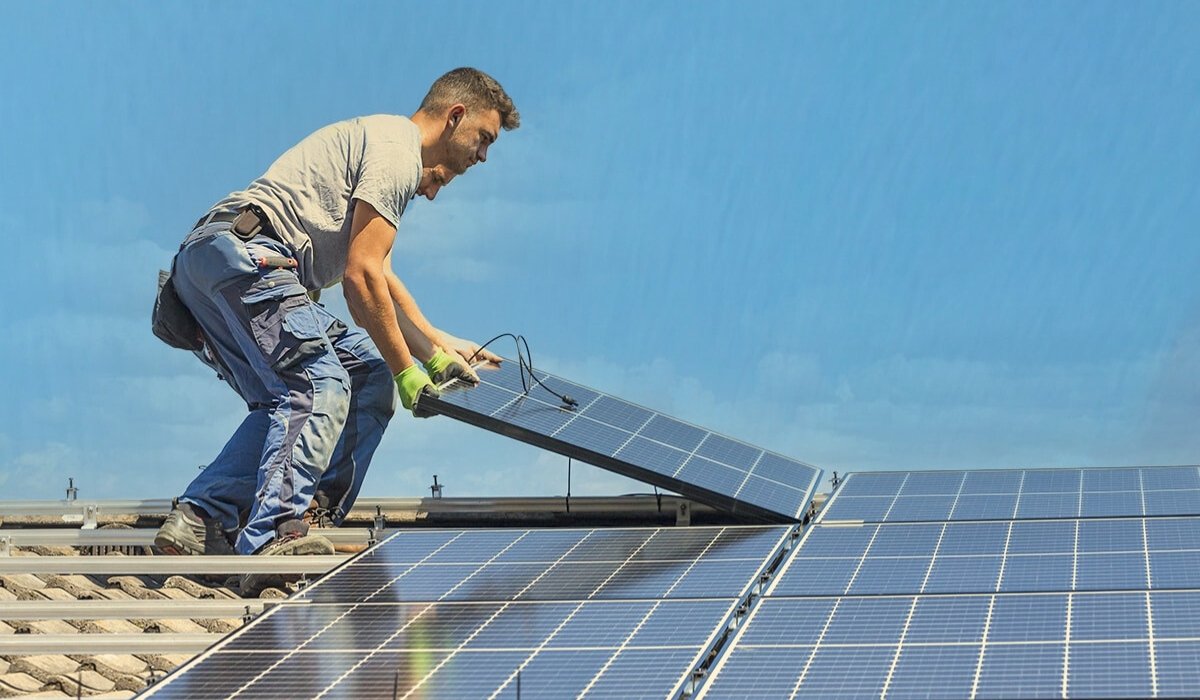We will explore how solar providers go beyond simply installing panels to enhance energy efficiency for homes and businesses. While solar panels are often the first thing that comes to mind when thinking about solar energy, the true impact of solar providers extends far beyond the panels themselves. These companies employ a range of strategies and technologies to optimize energy usage, minimize waste, and lower utility costs. By integrating energy storage, smart monitoring systems, and efficient energy management practices, solar providers ensure that their clients reap maximum benefits from renewable energy. Understanding these methods allows homeowners and businesses to make informed decisions that not only harness solar power but also improve overall energy efficiency and sustainability.
Strategies for Maximizing Energy Efficiency
- Energy Storage Solutions
One of the primary ways solar providers, including North Valley Solar Power, enhance energy efficiency is by integrating energy storage systems, such as batteries. These systems store excess energy generated during peak sunlight hours, allowing it to be used later when energy demand is higher or when sunlight is not available. By storing surplus energy, homes and businesses can reduce their reliance on the traditional power grid, resulting in lower electricity bills and increased energy independence. Energy storage also provides backup power during outages, ensuring continuous energy availability.
Solar power companies carefully size and install battery systems to match the specific energy consumption patterns of each property, optimizing performance and preventing energy loss. The combination of solar panels and storage systems transforms solar installations from mere electricity producers into comprehensive energy solutions that enhance efficiency throughout the day and night.
- Smart Energy Management Systems
Beyond panels and batteries, solar providers often implement smart energy management systems that monitor and control energy usage. These systems utilize sensors, apps, and intelligent algorithms to track electricity consumption in real-time, providing users with detailed insights into their energy usage habits. By identifying patterns of high usage and suggesting adjustments, these systems help reduce unnecessary energy waste. For example, smart thermostats can optimize heating and cooling schedules, while automated lighting systems ensure that lights are only on when needed. These tools not only lower energy consumption but also increase the lifespan of appliances by preventing overuse. Solar providers customize these systems to fit the unique requirements of each property, creating a tailored approach to energy efficiency that complements the solar installation.
- Energy Audits and Efficiency Assessments
Solar providers frequently conduct energy audits and efficiency assessments before designing a solar solution. These evaluations examine a building’s energy consumption, insulation quality, and overall efficiency to identify areas where energy is being wasted. Recommendations from these audits may include upgrades to insulation, windows, and HVAC systems, as well as the installation of energy-efficient appliances. By addressing inefficiencies alongside solar installation, providers ensure that every watt of energy generated is used effectively. This holistic approach maximizes the return on investment for clients and supports sustainable energy use. The audit process also educates property owners about their energy consumption, empowering them to make informed decisions that enhance overall efficiency and reduce environmental impact.
- Demand Response Integration
Some solar providers offer integration with demand response programs, which adjust energy usage in response to grid conditions. During periods of high electricity demand, these systems can temporarily reduce energy consumption by shifting or scaling back non-essential usage. This approach not only helps stabilize the grid but also prevents unnecessary energy waste and reduces utility costs. By participating in demand response programs, clients can benefit from incentives offered by utility companies while contributing to overall energy efficiency and sustainability. Solar providers ensure that these systems work seamlessly with the solar installation and energy storage, creating a coordinated approach that maximizes both environmental and financial benefits.
- Optimized Solar System Design
Energy efficiency is also influenced by how a solar system is designed and installed. Providers consider factors such as roof orientation, shading, and panel placement to ensure that the system captures the maximum amount of sunlight. Advanced modeling tools enable the prediction of energy generation based on local weather patterns and seasonal variations, allowing providers to tailor the system for optimal performance. Proper installation techniques minimize energy loss and increase the lifespan of the system, ensuring that it continues to deliver high efficiency over time. By focusing on design and installation quality, solar providers ensure that the panels themselves contribute effectively to the overall energy strategy, complementing storage, management, and efficiency measures.
- Integration with Other Renewable Technologies
Beyond solar panels, some providers integrate other renewable technologies, such as solar water heaters, energy-efficient lighting, or hybrid systems, to further improve energy efficiency. These complementary solutions reduce the overall demand on the grid and maximize the utilization of renewable energy resources. By combining multiple technologies, solar providers create a cohesive energy ecosystem that maximizes efficiency and sustainability. Each additional system is carefully evaluated to ensure it aligns with the property’s energy needs and goals. This integrated approach enables clients to achieve substantial reductions in energy costs while also promoting environmental responsibility, demonstrating that solar providers can extend their impact far beyond electricity generation alone.
Solar providers contribute to energy efficiency far beyond the installation of panels. Through energy storage systems, smart management technologies, energy audits, demand response integration, optimized system design, complementary renewable technologies, and ongoing maintenance, these companies ensure that solar energy is utilized effectively and sustainably. By adopting these strategies, homeowners and businesses can reduce utility costs, minimize energy waste, and enhance their contribution to environmental preservation. Choosing a solar provider that implements a comprehensive approach transforms a simple solar installation into a complete energy efficiency solution, creating long-term benefits for both clients and the broader community.
RELATED TOPIC: Hamro Solar LLC: Your Gateway to Affordable and Sustainable Energy Solutions










